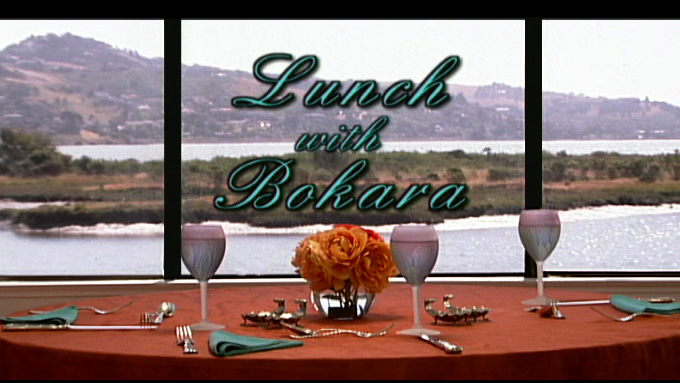
Welcome to Lunch With Bokara: an exciting new television series that explores the frontiers of religion and metaphysics, of science and spirituality. Join host Bokara Legendre as she brings together an engaging group of well-known scientists, thinkers, and spiritual teachers from around the world. Join a unique, spontaneous conversation as fascinating guests who have never met are brought together for the first time to share their insights, knowledge and wisdom.
Meditation, Emotions & Body Language
with Jack Kornfield and Paul Ekman
Buddhist meditation teacher Jack Kornfield and psychologist Paul Ekman meet to explore what scientists and psychologists now understand about meditation, the mind and our emotional states, and how recent scientific studies compare with what spiritual masters have studied and learned over the centuries. As we learn to look into our own minds and into other people’s faces we gain new insights on the many subtle ways we communicate, to ourselves and to others.
Featured Guests
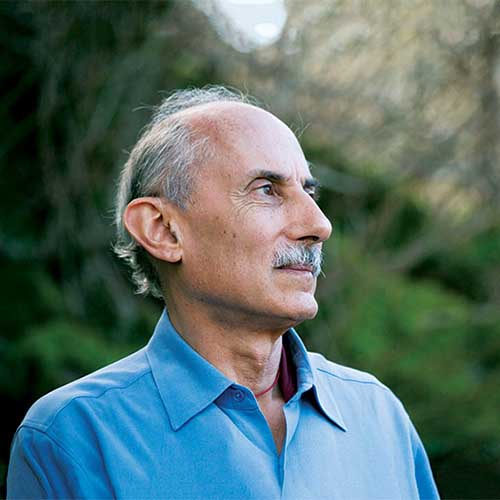
Jack Kornfield
Jack Kornfield is a bestselling American author and teacher in the vipassana movement in American Theravada Buddhism. He has focused on combining loving kindness and self compassion with the practice of mindfulness, and incorporating together the wisdom of Eastern and Western psychology.
“When you begin to meditate, your feelings begin to reveal themselves, and you see the ‘inner landscape’ that activates actions in a way that you have never seen before.” —Jack Kornfield
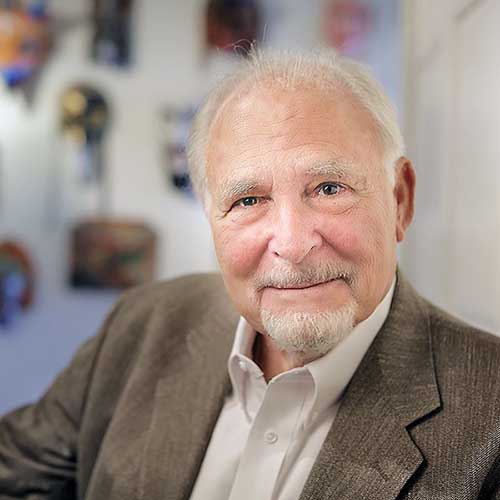
Paul Ekman
Paul Ekman is an American psychologist and professor emeritus at the University of California, San Francisco who is a pioneer in the study of emotions and their relation to facial expressions.
“What I know now of Buddhism makes a lot of sense as techniques to expand consciousness into areas that consciousness often doesn’t go. To learn to be an observer of yourself is crucial, and nature didn’t make that easy for us.” —Paul Ekman
Food for the Soul
with Huston Smith and Ram Dass
Internationally-renowned scholar of world religions, Huston Smith joins spiritual guru Ram Dass, author of “Be Here Now”, to share thoughts on consciousness, mortality, psychedelics and hope.
Featured Guests
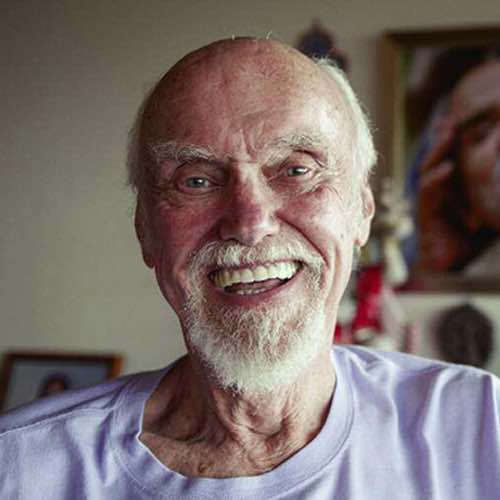
Ram Dass
Ram Dass is an American spiritual teacher, former academic and clinical psychologist, and the author of the seminal 1971 book Be Here Now.
“The stroke didn’t just change my body; it changed my perception of myself. Every time you have a change in your life, that’s an experience that lets God come through.” — Ram Dass
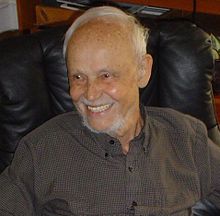
Huston Smith
Huston Cummings Smith was a religious studies scholar in the United States. His book The World’s Religions sold over three million copies and remains a popular introduction to comparative religion. He died on December 30, 2016.
“Consciousness is not a state, it is not a process, it is a substance.” —Huston Smith
Healing, Family & Community
with Sobonfu Some and Rachel Naomi Remen
African healer Sobonfu Some meets author and medical doctor Rachel Naomi Remen to discuss topics such as the ways in which emotions cause illness, and how broken families can heal with the help of community.
Featured Guests
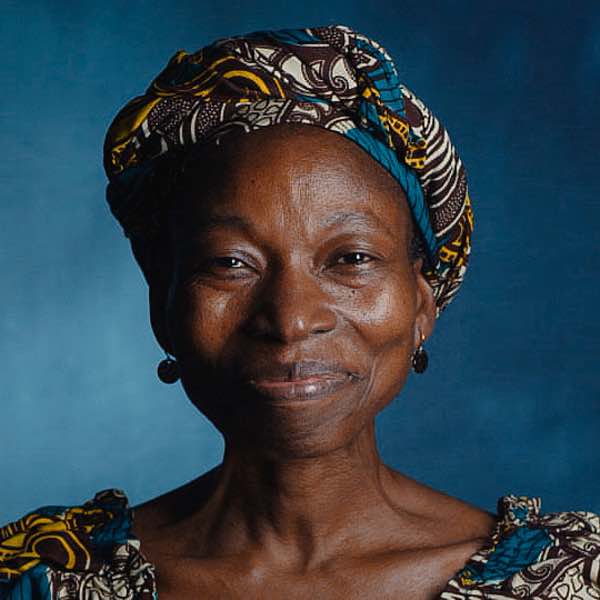
Sobonfu Some
Sobonfu Somé was a Burkinabe teacher and writer, specializing in topics of spirituality. She wrote three books: her first, The Spirit of Intimacy, looks at relationships and intimacy through the lens of African spirituality and teachings.
“Ritual is to the soul what food is to our physical body.” —Sobonfu Some
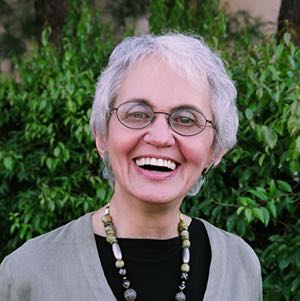
Rachel Naomi Remen
Rachel Naomi Remen is an author about and teacher of alternative medicine in the form of integrative medicine. She is a professor at the Osher Center of Integrative Medicine at the University of California, San Francisco.
“I suspect that illness may at some very deep level be a world service, that it is a way that we awaken compassion in the world and other people. It is a way in which we grow.” —Rachel Naomi Remen
The Monk & The Rabbi
with Brother David Steindl-Rast and Rabbi Larry Kushner
Benedictine Brother David Steindl-Rast and Rabbi Larry Kushner explore the depths of religious fundamentalism, mystical experience and the power of gratitude and forgiveness.
Featured Guests
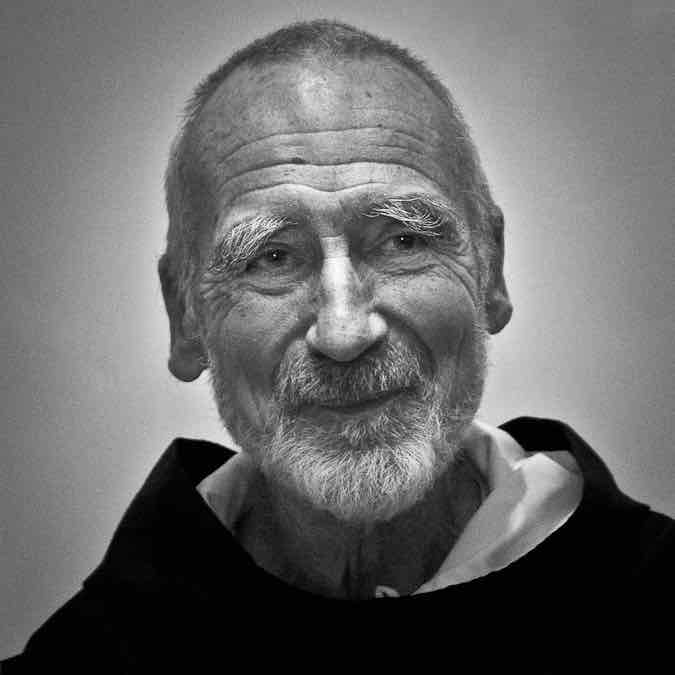
Brother David Steindl-Rast
David Steindl-Rast OSB is a Catholic Benedictine monk, notable for his active participation in interfaith dialogue and his work on the interaction between spirituality and science.
“No one can see God and live happily ever after as if nothing has happened. It is a kind of dying. You see, when we lose ourselves we find ourselves” — Brother David Steindl-Rast
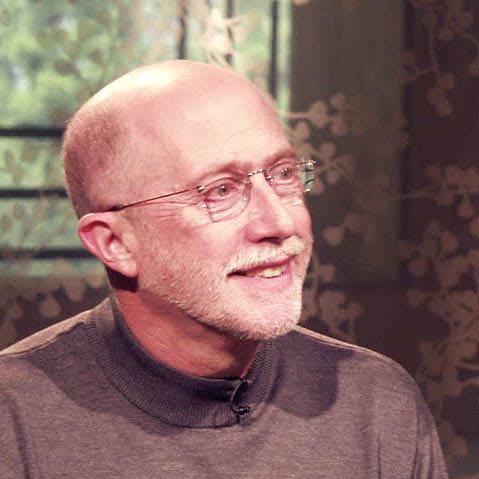
Rabbi Larry Kushner
Lawrence Kushner is a Reform rabbi and the scholar-in-residence at Congregation Emanu-El in San Francisco, California.
“You can only say ‘I saw God’, you can never say ‘I see God’ because there can’t be ‘I’ and ‘God’ together. I’m reminded of what Gary Cooper says in an old Western movie: ‘There ain’t room enough in this here world for your ego and me, so you pick.'” —Rabbi Larry Kushner
Transformation and Mindfulness
with Dr. Jon Kabat Zinn and Michael Murphy
Dr. Kabat-Zinn is the founder of the Stress Reduction Clinic at the University of Massachusetts Medical School. He is a meditation teacher and author of three books- “Wherever You Go, There you Are”, “Full Catastrophe Living” and recently, “Coming to Our Senses.” Michael Murphy is the founder of Esalen Institute and author of “Golf in the Kingdom”, “The Future of the Body”. and numerous other books. This program presents a variety of practices for developing awareness and mindfulness, practices which can not only heal our bodies and minds, but also, as we will hear, our troubled planet. Their discussion is full of inspiration, practical advice and lots of laughter.
Featured Guests
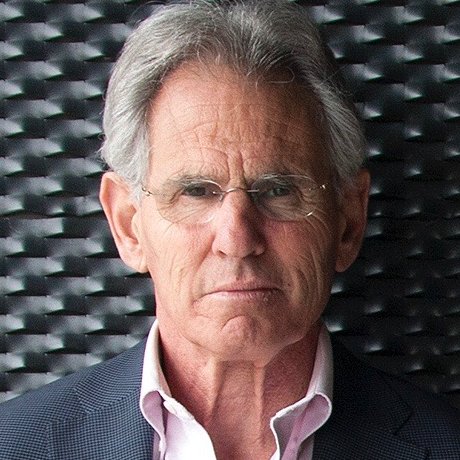
Jon Kabat Zinn
Jon Kabat-Zinn is an American professor emeritus of medicine and the creator of the Stress Reduction Clinic and the Center for Mindfulness in Medicine, Health Care, and Society at the University of Massachusetts Medical School.
“The irony of meditation is that if you give up the desire to get someplace else, you will get someplace else, but it will be here, as opposed to somewhere else, and the YOU who will get there will be the full you, as opposed to the encrusted, contracted, encapsulated you that we think we are most of the time.” — Jon Kabat Zinn
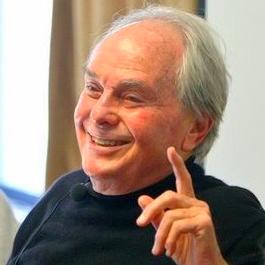
Michael Murphy
Michael Murphy is the co-founder of the Esalen Institute, a key figure in the Human Potential Movement and author of The Future of the Body and other books on topics related to extraordinary human potential.
“People mistake the idea of evolution for progress. These are two different things. Evolution is a fact-life has evolved on this planet. These are irreversible sequences, of development over time. But progress means that you set up some sort of criteria to say you are getting better and better in some ways.” — Michael Murphy
Zen and the Art of African Initiation
with Malidoma Some and Joan Halifax
Joan Halifax, Buddhist teacher, author and abbot of Upaya Zen Monastery in Santa Fe, talks about initiation with African shaman, healer and diviner, Malidoma Some. Malidoma suggests that people in the West suffer from “sickness of the soul.” He joins Roshi Joan in a fascinating conversation about the ways we can heal this sickness, as well as the unexpressed grief in our culture. In this program, we discover the secrets of an African initiation and the power of Buddhist vows with two people who walk between the worlds of East and West, of Magic and Meditation.
Featured Guests
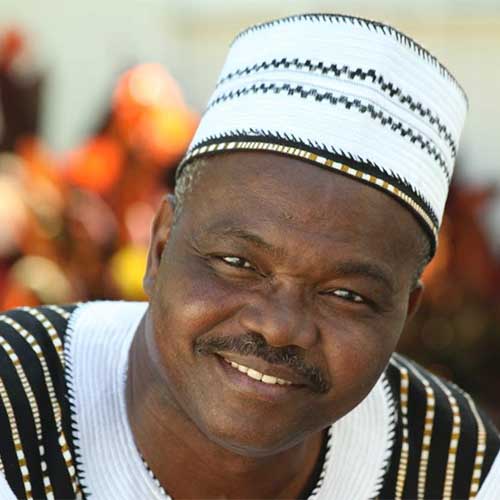
Malidoma Some
Malidoma Patrice Somé is a West African writer and workshop leader, primarily in the field of spirituality. Born in a Dagara community in Dano, Burkina Faso, he was raised by Jesuits from the age of four.
“The purpose of life is not something that you find, it’s more like something that finds you. You and your purpose meet half way. And you know the culture I come from assumes that you cannot be born in this world without a purpose. And so every baby that is born, we start to look at what is it that she or he is coming here for?” — Malidoma Some
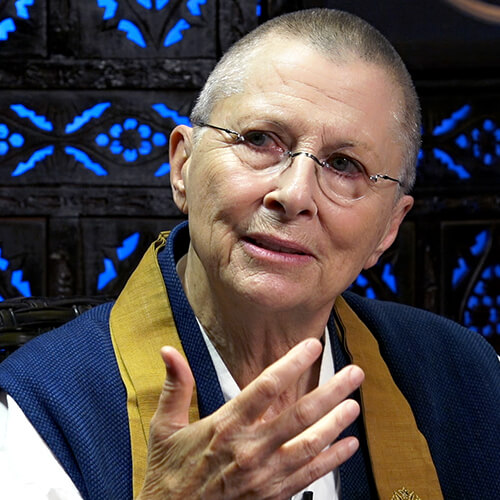
Joan Halifax
Roshi Joan Halifax, Ph.D. is a Buddhist teacher, Zen priest, anthropologist, and pioneer in the field of end-of-life care. She is Founder, Abbot, and Head Teacher of Upaya Institute and Zen Center in Santa Fe, New Mexico. She is Director of the Project on Being with Dying, and Founder of the Upaya Prison Project that develops programs on meditation for prisoners.
“In Buddhism its not so much about finding the kind of magic that fascinates us all, its actually about finding the utter magic or miracle in this glass of water. That’s really when our life really opens up. The magic is in the ordinary things, in the miracle of this moment.” — Joan Halifax
Compassion in Action
with Robert Thurman and Dr. Larry Brilliant
Dr. Robert Thurman, Professor of Indo-Buddhist studies at Columbia University, inspiring teacher, lecturer and author of twelve books, discusses the fruition of spiritual practice – our work in the world, with Dr. Larry Brilliant , the epidemiologist who founded the SEVA Foundation, which has returned sight to over two million indigenous people in South America and Asia with free cataract operations. Dr. Brilliant headed the medical team which stamped out small pox in India in the 1970’s. Today he is back in India working on the spreading polio epidemic. This program will discuss the practice of Compassion in our personal and worldly lives. How is a spiritual practice, whatever it may be, taken into the larger society in a useful way?
Featured Guests

Robert Thurman
Robert Thurman is a professor of Indo-Tibetan Buddhist Studies in the Department of Religion at Columbia University, President of Tibet House US, a non-profit organization dedicated to the preservation and promotion of Tibetan civilization, and President of the American Institute of Buddhist Studies.
“Compassion can only come from wisdom, it doesn’t come from a sentimental idea, like ‘I should be compassionate’. Compassion comes naturally when you know the nature of the world – knowing that you and the other person are one people, one being.” — Robert Thurman
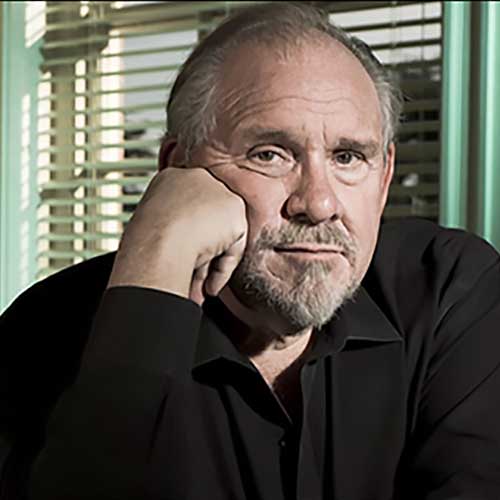
Dr. Larry Brilliant
Lawrence “Larry” Brilliant is an American epidemiologist, technologist, philanthropist, and author of “Sometimes Brilliant.” Brilliant, a technology patent holder, has been the CEO of public companies and venture backed start-ups. Brilliant, a technology patent holder, has been the CEO of public companies and venture backed start-ups.
“The happiest people that I know are the ones who are in service to others. There is nothing that can make you happier – nothing – no piece of art, no accomplishment, no trick, no candy bar, no ice cream cone – nothing can make you as happy and as fulfilled, as when you are doing for others. And all the neurosis that we have accumulated disappear in a heart beat, the moment you are genuinely engaged in helping other people.” — Dr. Larry Brilliant
The Heart of Islam
A Conversation with Shaykh Ahmed Sidi Kostas
Islam is arguably the most misunderstood and feared religion in the world today. Yet, few people know th at sufism, the mystical branch of Islam, much like the core teachings of Christianity, is built around the concept of Love – Divine Love and love for all Creation. From the ecstatic bliss of the whirling dervishes to the multi-layered mystical poetry of Jalaluddin Rumi, sufism has recently become more well- known in the west, as a practice which promotes tolerance and acceptance among all peoples and faiths.
Shakyh Ahmed Sidi Kostas, a Moroccan sufi of the Qadiri Order and a senior official in the Moroccan Ministry of Islamic Affairs, joins Bokara for a unique one-on-one lunch discussion, exploring a number of engaging topics from a sufi perspective, including justice, the veil and “Divine intoxication”.
Featured Guests
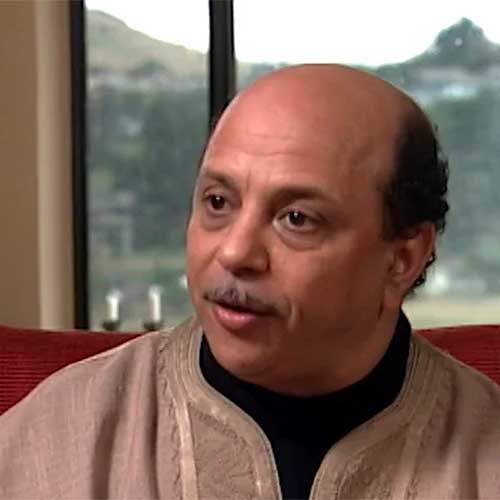
Shaykh Ahmed Sidi Kostas
Shakyh Ahmed Sidi Kostas is a Moroccan sufi of the Qadiri Order and a senior official in the Moroccan Ministry of Islamic Affairs.
“Sufis talk about the cup. The cup is the heart. Once it is filled with this faith in God, then it has a taste. It tastes sweet. And then this sweetness gradually gets deeper and deeper until it becomes what the sufis call, Divine wine. So you get intoxicated in this sweetness, and then you see the Divine wherever you look.” — Shaykh Ahmed Sidi Kostas
“It’s high time for social justice to prevail throughout the Arab world. It’s high time that people would think of democracy as part of their lives. And it’s also time for people who’ve been confined to their own culture and only see the world through their own culture to open up and exchange with others.” —Shaykh Ahmed Sidi Kostas
Myths, Money and Meaning
with Jacob Needleman and Dr. Angeles Arrien
Myths are no joking matter. Myths inspire our very actions and give each of us a sense of meaning, both in our individual lives and in the lives of our culture and society as a whole. In this program, philosopher and author Jacob Needleman, and anthropologist Angeles Arrien join Bokara for an exploration the myths surrounding money, time and meaning in American society today.
In this lively discussion, several other core American myths, including consumption, pleasure and happiness are discussed and contrasted with the dominant myths of America’s founding fathers, as well as the dominant myths that operate in other cultures.
Featured Guests
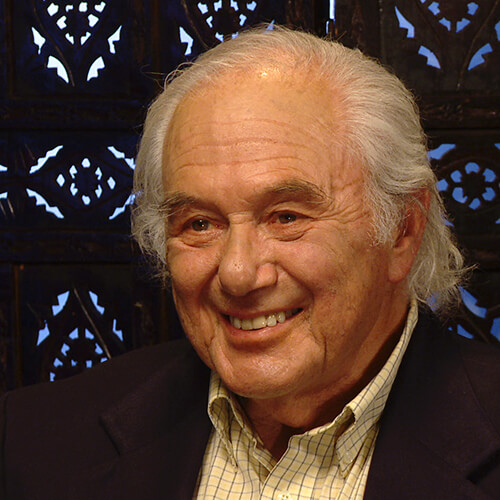
Prof. Jacob Needleman
Dr. Jacob Needleman is a professor of philosophy, a religious scholar, and author of several books including his most recent book called, What is God ? He was educated at Harvard, Yale, and Freiburg Universities. He is a former director of the Center for the Study of New Religions at the Graduate Theological Union in Berkeley, CA. He has been featured on Bill Moyers’ acclaimed PBS series, A World of Ideas.
“Money is the principle means by which our culture organizes its external life. A human being is, is a two natured being: we an outer and an inner being. We are in the material doing world and we are also in an inner contemplative world. We are both of these things. So I think we have to understand money to see that money can buy almost everything except meaning” — Prof. Jacob Needleman
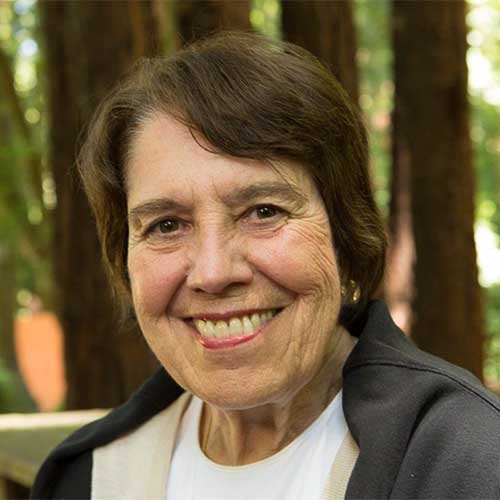
Dr. Angeles Arrien
Angeles Arrien, Ph.D. is a cultural anthropologist, award-winning author, educator, and consultant to many organizations and businesses. She lectures and conducts workshops worldwide, bridging cultural anthropology, psychology, and comparative religions. Her work is currently used in medical, academic, and corporate environments. She is the President of the Foundation for Cross-Cultural Education and Research.
“One of the great practices is learning to befriend one’s self. It is the longest relationship you’ll every have. Who are you going to sleep with the most? Talk to the most? Shower with the most? Eat with the most? It is you. And we don’t spend enough time really uncovering and discovering the deeper mystery of who we really are, rather than who we think we are.” — Dr. Angeles Arrien
The Taoist and the Activist
with Dr. Benjamin Tong and Julia Butterfly Hill
In this program, Taoist professor and psychologist Dr. Benjamin Tong meets environmental activist Julia Butterfly Hill, the world’s most famous “tree-sitter”. Julia became an international symbol of environmental activism by living for over two years high atop an old-growth redwood tree in northern California, a tree she named “Luna”, which she ultimately saved from destruction.
Meeting for the first time, these two guests share thoughts on subjects ranging from compassion and attachment, to anger and finally, Nature as a spiritual path. In this unique lunch conversation, witness the contemplative tradition of Taoism, alongside the committed, activist approach of today’s environmental movement.
Featured Guests
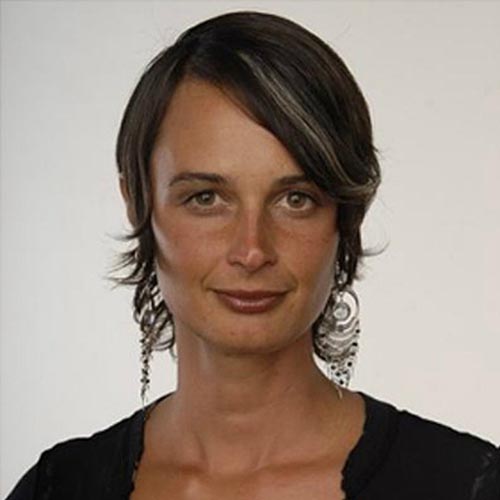
Julia Butterfly Hill
Julia Lorraine Hill is an American environmental activist and tax redirection advocate. She is best known for having lived in a 180-foot-tall, roughly 1500-year-old California redwood tree for 738 days between December 10, 1997 and December 18, 1999. Hill lived in the tree, affectionately known as Luna, to prevent Pacific Lumber Company loggers from cutting it down. She is the author of the 2000 book The Legacy of Luna and co-author of One Makes the Difference. She is a vegan.
“So often activism is based on what we are against, what we don’t like, what we don’t want. And yet we manifest what we focus on. And so we are manifesting yet ever more of what we don’t want, what we don’t like, what we want to change. So for me, activism is about a spiritual practice as a way of life. And I realized I didn’t climb the tree because I was angry at the corporations and the government; I climbed the tree because when I fell in love with the redwoods, I fell l in love with the world. So it is my feeling of ‘connection’ that drives me, instead of my anger and feelings of being disconnected.” — Julia Butterfly Hill
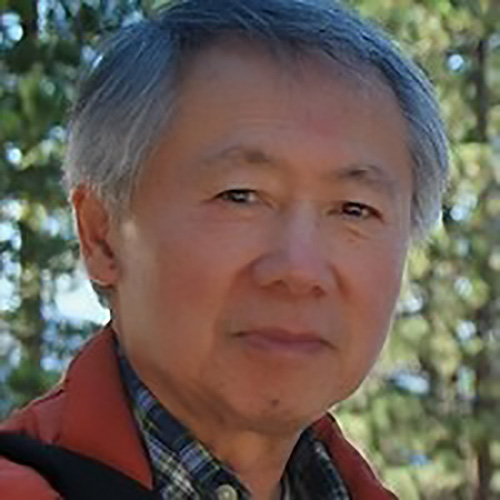
Dr. Benjamin Tong
Professor Emeritus of Clinical Psychology at California Institute of Integral Studies as well as a psychotherapist and organizational consultant in private practice, Dr. Tong has devoted much of his professional life to the exploration of psychological, social and cultural dynamics. He is a member of the steering committee of the International Karen Horney Society. As Director and Head Instructor of the School of Taoist Internal Arts, Dr. Tong maintains an ongoing practice in taiji quan, qigong, and Taoist/Buddhist studies.
“We get in trouble being human beings when we are attached to how life should turn out. If we are attached to ‘reputation’, who makes us who we are, or whatever we are attached to, it makes for – to borrow from the language of Star Wars – ‘a disturbance in the force’. Something is instantly out of balance. And it was, Lao-Tse, the founder of Taoism who said, ‘Our needs are few; our wants are endless’.” — Dr. Benjamin Tong
Peace through Dialogue
with Bishop William E. Swing and Professor Abdul Aziz Said
This unique, timely program brings together two internationally – renowned leaders in conflict resolution – one Muslim and one Christian, to discuss the possibilities for inter-faith dialogue and peace. Professor Abdul Aziz Said is the Director of the Center for Global Peace at American University, who meets here for the first time, Episcopal Bishop William E. Swing, Director of United Religions Initiative, an international inter-faith peace program.
Featured Guests
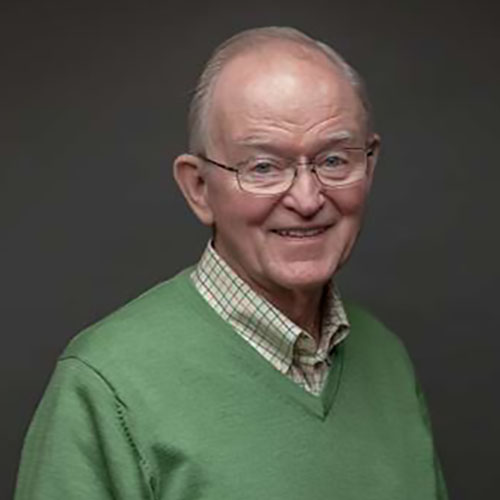
Bishop William E. Swing
William Edwin Swing is a retired bishop of the Episcopal Church in the United States. He was the Bishop of California, based in San Francisco, from 1980 to 2006. He is the Founder and President of the United Religions Initiative (URI), an international NGO working to promote interfaith cooperation. He is an author and inspirational speaker and has received numerous awards for his commitment to service.
“Most of us learn religion in a tribal setting. I learned it in an Episcopal tribe. You might have learned it in a Muslim tribe. And that’s fine as long as we are living in tribes. But now that we live together side by side, all over the world we have to learn God not just in a tribal sense but in a global sense, and in a universal sense.” — Bishop William E. Swing
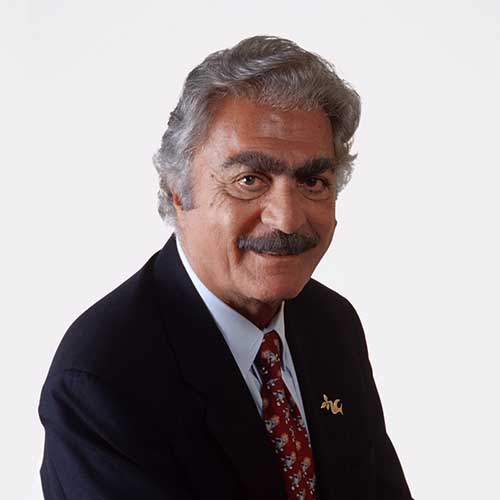
Professor Abdul Aziz Said
Abdul Aziz Said is a Syrian-born writer and senior-ranking professor of international relations in the School of International Service at American University where he has taught since 1957. He is the first occupant of the endowed Mohammed Said Farsi Chair of Islamic Peace; director-emeritus and founder of AU’s Center for Global Peace, which undertakes a range of activities aimed at advancing the understanding of world peace; and founding director of the International Peace and Conflict Resolution department at the School of International Service.
Professor Abdul Aziz Said”What we call ‘fundamentalism’ operates both on the political and religious level. We see it on the religious level when people are threatened. They take their belief system – be it Islam, Christianity, or Judaism—reduce into a narrow formula, to separate themselves from others. On the political level, when a people or a nation finds itself hegemonic – as we are—we practice ‘political fundamentalism’. We take our general belief system, – Western Liberalism—and reduce it to a narrow formula to justify our own hegemony. So for me, it is a ‘perception of threat’, which is really a function of not having discovered one’s genuine spirit.” — Professor Abdul Aziz Said
Our Place in the Cosmos
with Brain Swimme, PhD and Dr. Mary Evelyn Tucker
Over a colorful Chinese chicken salad, host Bokara Legendre takes on some of the “big questions” about human existence and our role and purpose in the cosmos. What is the scientific explanation of the creation of the universe? Is western science’s so-called “quantum vacuum”, just another “creation myth”, and if so, how does it compare with the creation myths of other societies and belief systems? As guides on this existential journey through the cosmos, Bokara is joined by mathematical cosmologist Brian Swimme, PhD, and professor of world religions, Dr. Mary Evelyn Tucker.
Featured Guests
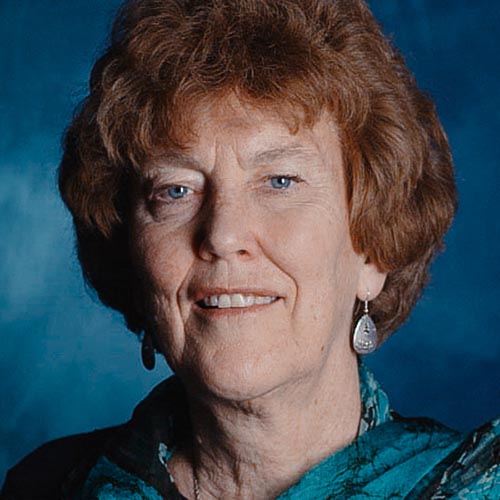
Dr. Mary Evelyn Tucker
Mary Evelyn Tucker is a Senior Lecturer and Research Scholar at Yale University where she has appointments in the School of Forestry and Environmental Studies as well as the Divinity School and the Department of Religious Studies. She teaches in the joint MA program in religion and ecology and directs the Forum on Religion and Ecology at Yale with her husband, John Grim.
“Confucius had one of the most profound sensibilities, namely that change in the universe is the transformation, the pulsation of Everything. And that is what we harmonize with. So, to the Confucians, the resonance of the human ‘chi’, the vital energy, with the ‘chi’ of the universe – the animal world, the spirit world, the bird world, the wind world, is what we are here to constantly cultivate.” — Dr. Mary Evelyn Tucker
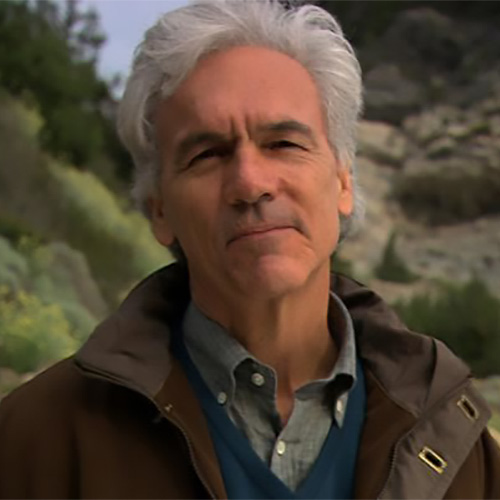
Brian Swimme, PhD
Swimme is an evolutionary cosmologist on the graduate faculty of the California Institute of Integral Studies in the Philosophy, Cosmology and Consciousness Program, an area of study within the Philosophy and Religion Program. His central concern is the role of the human within the earth community, the cultural implications of the Epic of Evolution, and the role of humanity in the unfolding story of earth and cosmos. Toward this goal, he founded the Center for the Story of the Universe in 1989.
“For four billion years Charles Darwin’s theory was correct – that the fundamental shaping power in life is Natural Selection. But that is no longer true. Now, the fundamental power is ‘cultural selection’, because humans have permeated everything so deeply that the survival of any particular species now depends on how it interacts with us. So far, this has been unconscious. We had no idea what we were doing. But now, we are starting to realize that our imagination is so powerful it is actually the shaping force of evolution.” — Brian Swimme, PhD
God is Everywhere… and Nowhere
with Swami Chidanand Saraswati and Wes Nisker
Celebrating her penchant for bringing interesting people from different traditions together for the first time over lunch, host Bokara Legendre invites a Hindu Swami from the Himalayas who believes in a pantheon of Gods, to meet an American Buddhist teacher who follows the non-theistic spiritual path of emptiness. Witness two teachers from two very different cultures and traditions share their insights on the core concepts of religious faith.
Featured Guests
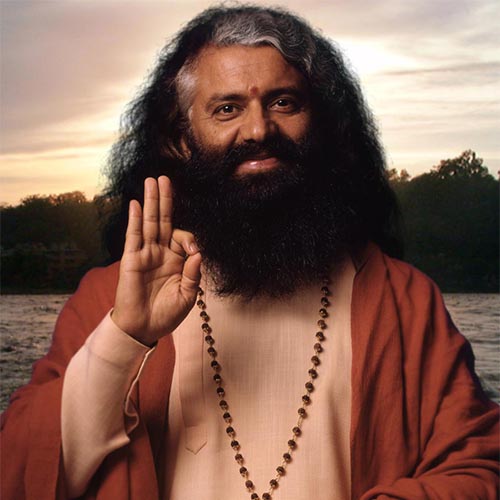
Swami Chidanand Saraswati
Pujya Swami Chidanand Saraswati, is the president and spiritual head of the Parmarth Niketan Ashram, a spiritual institution based in Rishikesh, India. He is also the founder and spiritual head of the Hindu Jain Temple in Pittsburgh. He is the founder or co-founder of several humanitarian and environmental organizations which serve a number of causes, including: Ganga Action Parivar, to preserve and protect the Ganga river and its tributaries.
“In Hinduism, there are not ‘many Gods’ – there is nothing BUT God. But ‘God’ in Hinduism says that whatever the way that my devotee worships me, I will appear in that form. Whatever that is. It’s no problem, because he’s God. He can come in any form, and yet he is formless. So, it’s not that we worship ‘the form’, we worship THROUGH the form.” — Swami Chidanand Saraswati
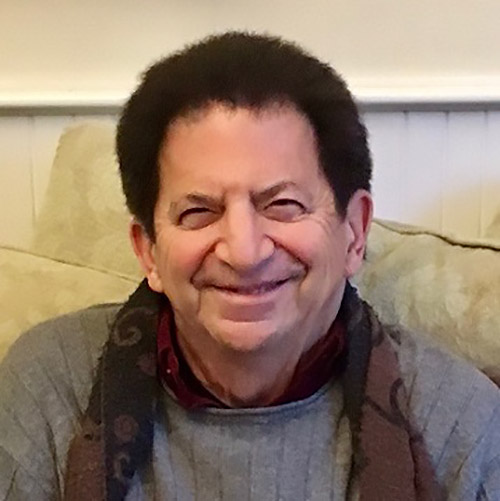
Wes Nisker
Wes Nisker is an author, radio commentator, comedian, and Buddhist meditation instructor. Nisker is a longtime fixture on San Francisco radio station KFOG. He has become well known for the catchphrase, “If you don’t like the news … go out and make some of your own,” which he used as the title for a 1994 book. His radio features could be unconventional, like this traffic report: “People are driving to work to earn the money to pay for the cars they’re driving to work in. Back to you.” He and his books have been covered in various publications of record.
“I’m a secular humanist, and I think one of the reasons that I was so attracted to Buddhism was that it did not ask me to have a belief in any particular form of a God. So when I bow to the Buddha, I’m bowing to that quality in all of us that is compassionate, and awake, and alive, and appreciative of this moment, this present moment, right now.” —Wes Nisker
